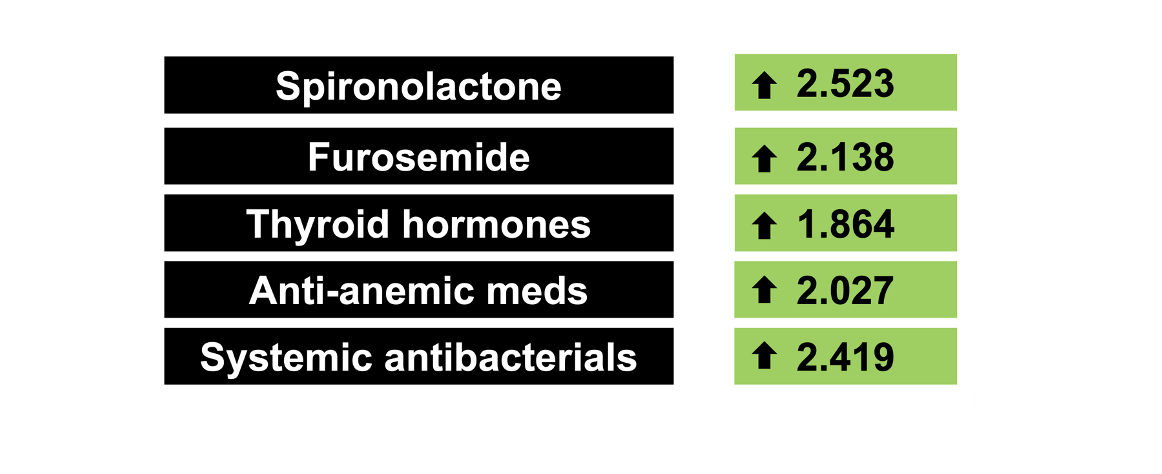Spironolactone: Should we also be checking zinc?
A study from Japan examined risk factors for zinc deficiency. The researchers used a study population of 13,100 patients who had reliable data available for zinc levels. Interestingly, associations with zinc deficiency were noted among older adults, males, and inpatients.
Following multivariate analysis, after adjusting for age and sex, there were significant associations with comorbidities, including pneumonitis (adjusted Odds Ratio (aOR) of 2.959), decubitus ulcer and pressure area (aOR 2.403), sarcopenia (aOR 2.217), COVID-19 (aOR 1.889), and chronic kidney disease (aOR 1.835).
What was particularly interesting to me as a hair specialist were the associations with certain drugs. Patients using the following medications were most likely to develop zinc deficiency: spironolactone (aOR 2.523), systemic antibacterials (aOR 2.419), furosemide (aOR 2.138), antianemic preparations (aOR 2.027), and thyroid hormones (aOR 1.864).
Comment
Zinc deficiency can cause a number of issues in humans. Globablly, zinc deficiency is said to affect 2 billion people.
Hair specialists need to know about zinc deficiency given that low zinc can sometimes cause hair loss or at least impact how hair grows.
Spironolactone was surprisingly a top drug in the list of drugs linked to zinc deficiency. More studies are needed to determine if hair loss patients using spironolactone are at risk for zinc deficiency and if we really should be checking zinc levels more often than we tend to do so now.
REFERENCE
Hirohide Yokokawa et al. Demographic and clinical characteristics of patients with zinc deficiency: analysis of a nationwide Japanese medical claims database. Sci Rep. 2024 Feb 2;14(1):2791. doi: 10.1038/s41598-024-53202-0.
This article was written by Dr. Jeff Donovan, a Canadian and US board certified dermatologist specializing exclusively in hair loss.

